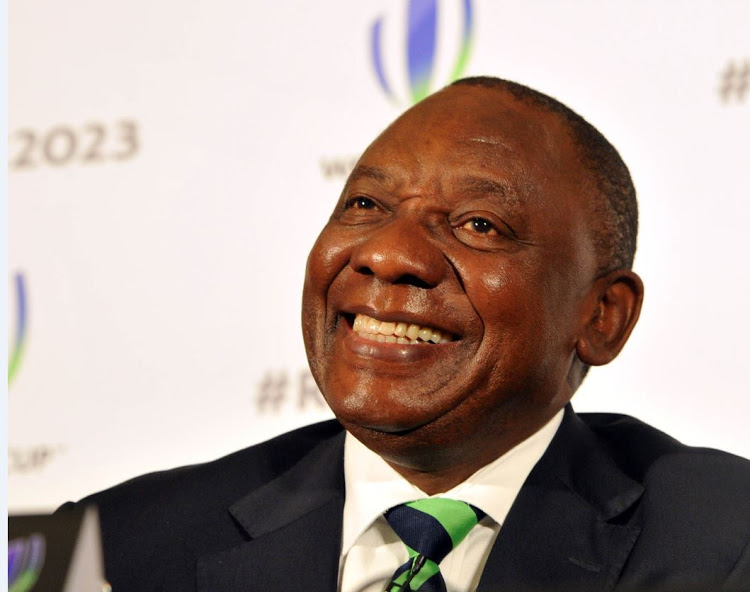Nyakallo Tefu
President Cyril Ramaphosa has defended the constitutionality of the National Coronavirus Command Council, including its powers to formulate and implement laws during the ‘State of National Disaster’.
Ramaphosa was responding to a question from journalists during his meeting with KwaZulu Natal Premier Sihle Zikalala and senior government officials to assess the provincial response to the COVID-19 pandemic.
“The lawyers do not understand how the Cabinet works,” Ramaphosa told journalists.
Ramaphosa and the Minister Cooperative Governance and Traditional Affairs Dr Nkosazan Dlamini-Zuma have come under virulent criticism for chopping and changing government regulations, particularly the ban on the sale of tobacco and cigarettes.
The command council has also given mixed messages on various regulations and measures related to the lockdown, creating confusion and anger among South Africans.
In a nine-page letter, advocate Erin Richards and advocate Nazeer Cassim, argue that the National Coronavirus Command Council has no legitimacy to make policy decisions and their implementation.
The letter also raised concerns over “possible risks of constitutional and democratic malfunctions arising from what appears to be the questionable establishment, structure and functions of the NCC, as well as the noticeable lack of transparency from government about the body”.
However, on Tuesday, Director-General in the Presidency Dr Cassius Lubisi responded to the lawyers’ letter, requesting them to provide constructive alternatives than threaten government with a lawsuit over the National Command Council.
“We trust the above addresses your concerns. Should it not, we invite your clients to constructively propose alternatives rather than threaten us with litigation,” said Lubisi.
Lubisi further stated that members of the Cabinet are accountable collectively and individually to Parliament for the exercise of their powers and performance of their functions in terms of Section 92(2) of the Constitution.
“The president assigns administration of legislation and powers or functions entrusted by legislation to other members of cabinet in terms of section 97 of the constitution,” he said.
Clarifying criticism levelled at Dlamini-Zuma, Lubisi said each of the relevant Ministers make decisions in terms of the provisions of the Disaster Management Act.
“Nothing in the act deprives other cabinet members of their assigned powers and functions, and they have been acting accordingly,” said Lubisi.
“Where regulations or directives issued during this difficult period required their authority, they fulfilled the task as required by relevant legislation. For example, the minister of transport is responsible for the management of our airports, and the minister of home affairs for the rights of entry of travellers. They issued relevant directives in this regard.”
The lawyers believe Dlamini-Zuma was wrong and had no powers whatsoever to reverse a decision to lift the ban on the sale of tobacco and cigarettes.
They also questioned the rationale behind the banning of cigarettes as the government has not provided any scientific evidence that cigarettes contribute to the transmission of COVID-19 virus.
Last week, French doctors and researchers found that majority of patients who tested positive for COVID-19 in a Parisian hospital were non-smokers and not habitual smokers.
“Some people may argue that alcohol creates a greater risk than cigarettes? Firstly, a greater risk of what, one may ask,” the lawyers argue in their letter to Ramaphosa.
“Secondly, there is no official study of which I’m aware that has proven that people who drink alcohol are by virtue of that fact alone more susceptible to contracting Covid-19 than people who smoke cigarettes.”
“So, what was the rational connection between the total lifting of the ban on the sale, dispensing and transportation of cigarettes and the total ban on the sale, dispensing and transportation of liquor, on the one hand, and the achievement of any of the purposes listed in s27(3) of the DMA?”
“Barely 24 hours before announcement of the total lifting of the ban on the sale and transportation of cigarettes by the South African President, the World Health Organisation put out the following statement: “smoking damages your lungs and other parts of your body, and may increase your risk of getting a severe case of covid-19”.
“So, in light of this statement one may ask, what rational connection was there between the unbanning of cigarette sales on the one hand, and the protection of the public from the destructive effects of Covid-19on the other?”



